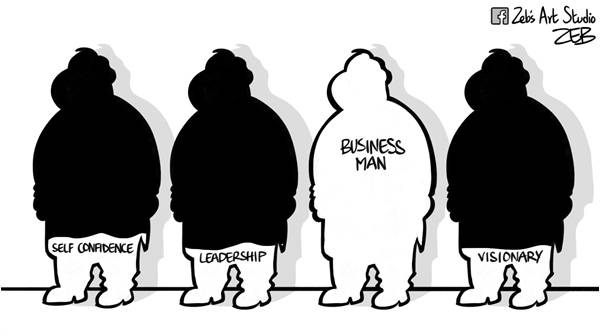
Taxi service
Sir,
This is in reference to the Albayrak Group of Turkey setting up modern radio linked yellow taxi service in Lahore. Direct foreign investment in setting up key industries accompanied with transfer of technology, which we may not possess currently or are not well conversant with, is desirable and even essential to make Pakistan self-sufficient. Turkey could help us in acquiring technology, which they possess and in which we lack expertise. We are a country, which has proven the capability to develop and acquire nuclear technology for our strategic defense requirements. Given the will and commitment, we have human resources and technological skills to manufacture Thunder F17s in collaboration with China.
Pakistan, which is neither Rwanda nor Sierra Leone, lacks human resources or skills to manage modern taxi service or a solid waste management system. For us to encourage investment in such fields like running a yellow taxi service is not understandable, because those who have invested will transfer their earnings in foreign exchange to their own country, which would lead to depletion of our already scarce foreign exchange reserves. It pains me to see our elected political leadership seeking advice from airlines like Qatar or Emirates, which we helped to get started, when all that was needed was restricting political interference, a level playing field, restricting traffic rights to bilateral agreements and selecting qualified professionals with integrity, instead of appointing cronies driving PIA to bankruptcy.
While foreign investment in the construction of the Orange Train scheme is understandable, although there is a debate about this not being a priority, it involves technology, which we are not current with, especially drilling underground tunnels below built up congested city, ensuring no damage to archaeological buildings of historical significance. Running a modern radio cab service is no rocket science. All that is needed is to provide centrally located land for parking and a congenial bureaucracy with a well disciplined traffic police, strict regulatory oversight and law enforcement for security to Pakistani investors, who do not hold any other nationality, so that there is no transfer of earnings abroad.
Ali Malik Tariq,
Lahore.
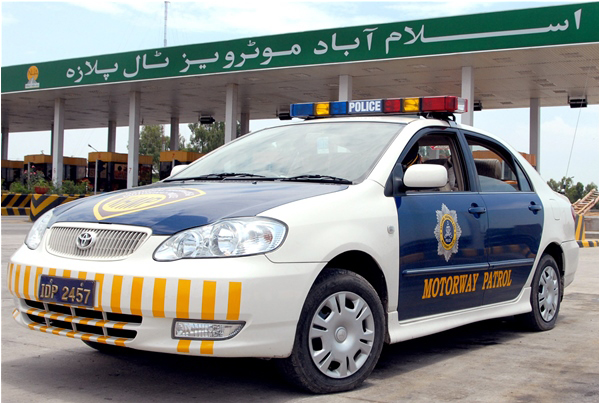
Senior citizen bogged down
Sir,
I am a retired military officer of 62 years of age. I have a booklet type driving license issued 42 years ago. I decided to get it converted to a modern card type license, for which I visited the Motorway Police licensing office in Islamabad. After paying the fee, I got my particulars registered and was shown into a room for medical examination. The person in-charge of the medical examination, without subjecting me to a preliminary medical test, told me to go to PIMS for the medical examination. I told him that I being a retired military officer can also avail such an exam at a military hospital. However, his bureaucratic reply was firm and absolute: only an examination at PIMS or Poly Clinic would satisfy him.
A visit to PIMS was an eye opener. I was required to get myself examined by at least three medical specialists, and the lines before each of them were hundreds of patients long. I was probably the fittest person at the hospital, who walked 6-8km every day and was free of any disease, and yet was overburdening an already overburdened hospital to meet a bureaucratic requirement. The long lines bogged me and I gave up the idea of getting a driving license from the motorway police. The fee paid is unlikely to be refunded by the Motorway Police.
Shabbir Ahmad,
Islamabad.
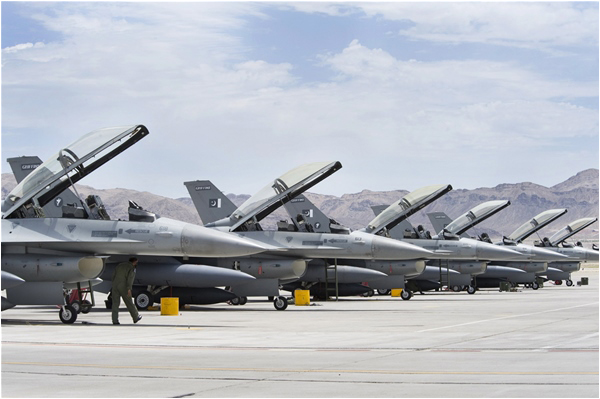
India’s tantrum
Sir,
On February 13, 2016 the United States decided to move forward with the sale of eight US-made F-16 Block-52 fighters to Pakistan. The US Department of Defense Security Cooperation Agency (DSCA) informed US lawmakers about the deal. An official of DSCA told Defense News, “We support the proposed sale of eight F-16s to Pakistan, which we view as the right platform to support Pakistan’s counter-terrorism and counter-insurgency operations.” It is said that in addition to eight F-16 Block 52 fighters, the deal will include increased performance engines, advanced radars, electronic warfare equipment, and spare and repair parts. In its official notice, the DSCA noted that the “proposed sale contributes to US foreign policy objectives and national security goals by helping to improve the security of a ‘strategic partner’ in South Asia.”
As reported in the international media, progress made on the F-16 deal has propelled US-Pakistan relationship back into the public eye. The country that has been immensely irked by this pro-Pakistan US decision is none but Pakistan’s ever-belligerent neighbour–India. The Indian government did not waste a second in venting its tantrums over this decision of the US. A spokesman for the Indian foreign ministry, Vikas Swarup, posted a statement on Twitter: “We are disappointed at the decision of the Obama Administration to notify the sale of F-16 aircrafts to Pakistan. We disagree with their rationale that such arms transfers would help in combating terrorism.” New Delhi’s standpoint that the F-16 aircrafts will be diverted away from the purposes for which it is being given and used toward striking India in any future scuffle between the two countries is amateurish and preposterous.
In the backdrop of India’s obsessive reaction that has no justification whatsoever, as the DSCA, in its notification to Congress, clearly assesses that “the proposed sale of this equipment and support will not alter the basic military balance in the region”. The spokesman for the Pakistani Embassy in Washington, Mr Nadeem Hotiana told Foreign Policy Magazine that US Senator Corker’s “insinuations”, vis-à-vis the issue under reference, that Pakistan is “facilitating the destabilising role of the Haqqani network in Afghanistan in any way are indeed unfortunate”. “We understand that the deal has not been blocked, but there are reservations regarding the financial aspect,” he added. The Pakistani Foreign Office (FO) has expressed its dismay, and very rightly so, over the Indian government’s reaction to United States’ decision to sell eight F-16 fighter jets to Pakistan. “We are surprised and disappointed at the Indian government’s reaction. Their army and arsenal stock is much larger and they are the largest importer of defense equipment,” the FO spokesman said in a statement. With regards to the F-16 sale to Pakistan, he said that Pakistan and the United States were closely cooperating in countering terrorism. The US State Department Deputy Spokesman, Mark Toner, too had earlier announced that the purpose of the sale was to enhance Pakistan’s precision strike capability.
India should appreciate the fact that being two important nuclear neighbours of the region neither India nor Pakistan can afford to go to war with each other under any circumstances. The fear that India has expressed that Pakistan might use the F-16s, the US has announced to provide to Pakistan, will be used against it rather than for the purpose specified does not hold ground for reasons explained above. Pakistan would never do any such thing because it is fully aware of the ramifications of such an irresponsible action on both countries. India’s tantrum vis-à-vis the issue in question is therefore nothing but a figment of its own imagination and a reflection of its strong desire for augmenting its hegemonic control in the region. The question that arises is what would satisfy India that Pakistan has no intent whatsoever of going to war with India? In fact, Pakistan has always sincerely desired peace with India not only in the interest of both countries but in the interest of the entire region. It would, in fact, be worthwhile if India directs its endeavours towards strengthening its relations with Pakistan, by resolving all pending bilateral issues amicably, for its own benefit as well as for the benefit of Pakistan and other countries of the region.
M Fazal Elahi,
Islamabad.
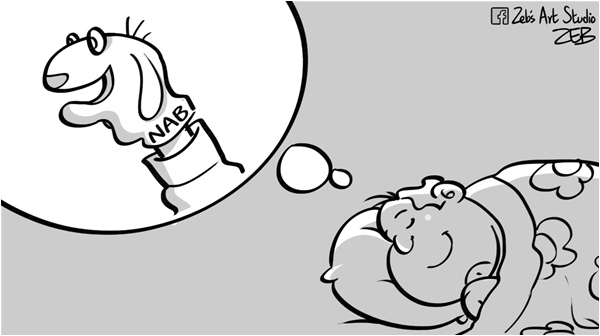
Free accountability
Sir,
Referring to the TFT editorial about NAB (Friday Feb 19, 2016), it’s a naked fact that all have made accountability process foggy and foundationless due to its selective nature of accountability. Many political leaders and their parties believe that the National Accountability Bureau (NAB) is for nabbing opposition parties and their leaders. However, NAB has recently started same procedure and now nabbing leaders and party in government. Nawaz Sharif criticised NAB when takhte-Lahore came under attack. Sindh was crying since years, but the Nawaz government closed its ears and eyes. They took action when NAB entered Lahore, the fiefdom of the PMLN.
NAB was formed in the General Musharraf era (1999-2007) and nabbed almost all political parties and their leaders. When Musharraf shed his uniform and became a civilian president, selective accountability was started. He saved those political parties that were supporting him, and nabbed political parties and their leaders, who opposed his legacy. The Pakistan People’s Party (PPP) and Pakistan Muslim League (PML-N) became easy and accessible targets of Musharraf’s NAB. When the PPP came into power from 2007-2013, NAB was sidelined and period of reconciliation had been started. Though the PPP lost many good friends/sympathisers at international and national levels due to its reconciliation policy, the party leadership remained on the same page and reconciliation continued for five long years. In the reconciliation period, NAB was sidelined and it was period of free for all. Now when the PML-N government is practicing same tactics as Musharraf and NAB is again out of the bag, the PPP leadership has thrown its reconciliation policy in the dustbin. The PPP leadership has realised that its reconciliation policy has harmed mainstream politics due to the common nature of the masses and party has been rooted out from three provinces in the 2013 elections. The PML-N is currently facing great criticism from its leadership of almost all political parties in opposition due to its nature of selective accountability. According to the PPP leadership, the PMLN is doing the same thing with the PPP that they did in 1999. PMLN came in power in 1990 by using methods of de-seating PPP from power through backdoor support of the establishment.
PPP is a mainstream political party under tremendous pressure from party workers and leaders. Though the party leadership is now strongly criticising all government moves, but still its tone is more soft then the imagination of party workers. The Nawaz government is facing criticism due to its selective nature of nabbing political leaders through NAB. This selectivity of NAB activities will further harm the political institutions of the country rather than political leadership. Currently, only Sindh is under attack from all federal agencies. Now the issue is that if wings of NAB are clipped then who will conduct inquiries into corruption cases? I think there is a need to have a free NAB, which must consist of not only retired military officials, but also civilians, members of judiciary, civil society, media and senior political personalities. A mix of all will make a system of nabbing corrupts acceptable to all.
Aijaz Ali Khuwaja,
Karachi.
Regional quotas for Punjab
Sir,
Recruitment policy for civil services should have a provision of quotas for northern, central and southern regions of Punjab according to the population. Quotas for many parts of the country have been fixed for their adequate share in civil services. Similar measure for these parts would facilitate good governance in Punjab.
Taraq Jazy,
Karachi.
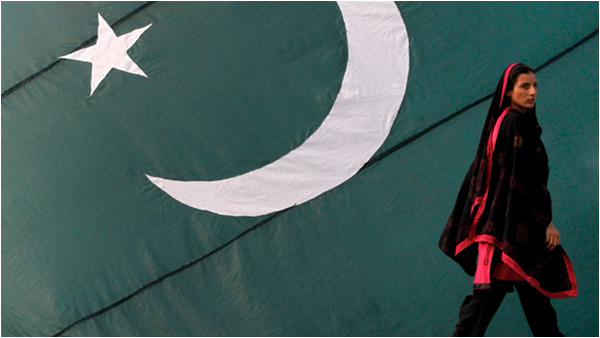
Graish’s bold statement
Sir,
This is apropos the news “Tipu reviled because he was not Hindu”. According to the news, “Outspoken writer Graish Karnard said in Bangalore that Tipu Sultan was not treated with respect at par with other Indian icons because he was a Hindu”, hats off to Graish Karnard for courageously speaking out against a bitter historical reality. He further stated “the eighteenth century ruler of Maysore would have enjoyed the same status as of Martha King Chhatrapathi Shivaji if he was a Hindu and not a Muslim”. The whole nation of Pakistan must salute to the courage, guts and speaking the truth of Graish, I wished in our land of pure we find any soul of his integrity and dauntlessness. Tipu Sultan is least known in Pakistan, in India his birth anniversary is being celebrated, paying rich tribute to the legendry ruler of Maysore who demonstrated not only the courage of the highest order but a classic example of tolerance and equality among his people. The ring that he was wearing at the time of his martyrdom was auctioned in the UK last year, which itself speaks of his tolerance, equality and religious harmony, as the inscription of the name of Hindu deity on the ring clearly speaks of Tipu’s liberal, progressive, tolerant and radical governance and his extraordinary quality of treating all his subjects equally irrespective of caste, religion or creed. It’s tragic that in Pakistan, the situation is no different than that in India; the encouraging part is this that at least there are some people like Graish Karnard who have come out openly to shower praise on a Muslim ruler, but in our country we never find a single soul praising any one out of their religion or caste. In our textbooks and even in some history reference books, Gandhi has been projected as a villain, and very seldom we will find his great efforts in cooling down the temperatures in Calcutta after the great divide of 1947. Not a single leader of India if referred in Pakistan in favourable words in the Pakistani media or history books. It’s the solemn duty of the state in particular and that of the media and individuals in general to learn a lesson from Graish Karnard and speak out openly against the biased attitude of a certain class of people who have taken this country’s history hostage and are twisting it at as per their own wishes and desires.
Aamir Aqil,
Lahore.

